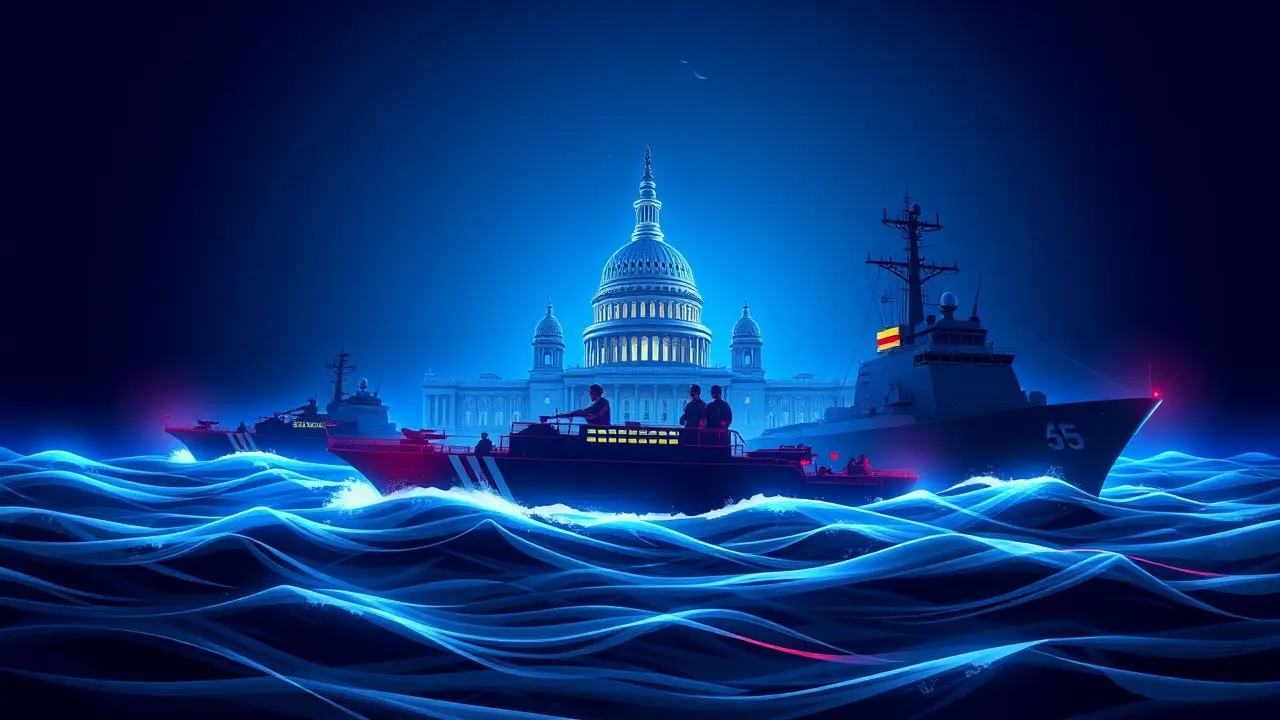
Politicsconflict & defenseMilitary Operations
Trump Administration Disputes War Powers for Venezuela Boat Strikes.
RO
Robert Hayes
1 day ago7 min read
The Trump administration's recent military engagements in the Caribbean Sea, targeting vessels suspected of drug smuggling with ties to the Venezuelan government, have ignited a profound constitutional and legal debate squarely within the halls of the US Congress, centering on the long-contested War Powers Resolution of 1973. This legislative cornerstone, born from the ashes of the Vietnam War and designed to curtail unchecked executive military action, mandates that a president must seek Congressional authorization for any sustained hostilities exceeding a 60-day window, a deadline that now looms over these maritime operations.The core of the dispute is not merely a technicality of timing but a fundamental clash over the definition of 'war' in the modern era; the administration frames these strikes as law enforcement actions within a broader counter-narcotics campaign, a continuation of a policy posture that views the Maduro regime not just as a political adversary but as a narco-state, thereby placing such interventions in a legal gray area outside the traditional purview of declared conflicts. Conversely, Congressional leaders, from both sides of the aisle, argue that the use of lethal military force against sovereign-flagged vessels, regardless of their illicit cargo, constitutes an act of war or at the very least 'hostilities' as defined by the 1973 act, requiring immediate legislative oversight and approval.This confrontation echoes historical precedents, from the contentious 'police actions' of the past to the more recent debates over drone strikes and the Authorization for Use of Military Force (AUMF), highlighting a persistent tension between executive agility and legislative prerogative in matters of national security. The strategic implications are vast, potentially setting a new precedent for presidential power that could be invoked by future administrations for engagements worldwide under the banner of anti-terrorism or anti-criminal operations, thereby further eroding the War Powers framework.Furthermore, this legal skirmish is inextricably linked to the broader, multi-faceted pressure campaign against Caracas, a high-stakes geopolitical gambit involving sanctions, diplomatic isolation, and now, contested military maneuvers, all aimed at destabilizing Nicolás Maduro's hold on power. The international dimension cannot be overlooked, as these actions in the Caribbean challenge norms of sovereignty and risk escalating tensions not only with Venezuela but also with its allies, including Russia and China, who have vested interests in the region. As the 60-day clock ticks down, the nation watches a constitutional drama unfold, one that will test the balance of powers and could redefine the boundaries of presidential authority in perpetuity, a debate as old as the Republic itself, now playing out on the turbulent waters of the Caribbean.
#War Powers Resolution
#US Congress
#Trump administration
#Venezuela
#drug-smuggling
#military action
#Caribbean Sea
#featured
Stay Informed. Act Smarter.
Get weekly highlights, major headlines, and expert insights — then put your knowledge to work in our live prediction markets.
© 2025 Outpoll Service LTD. All rights reserved.